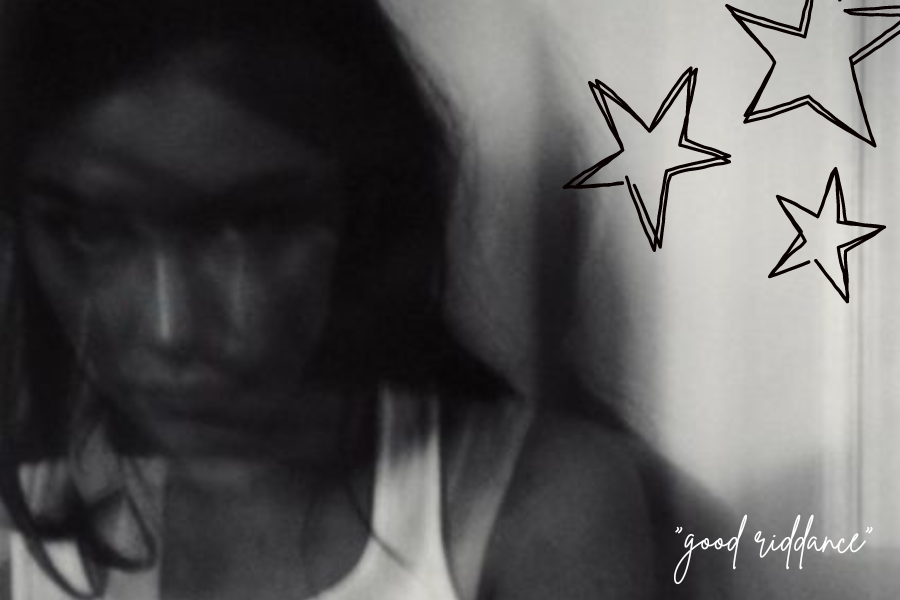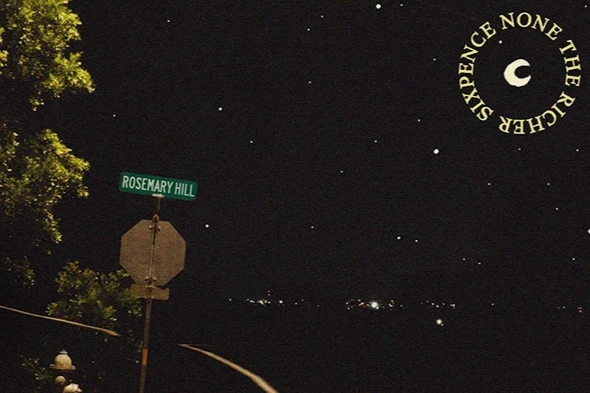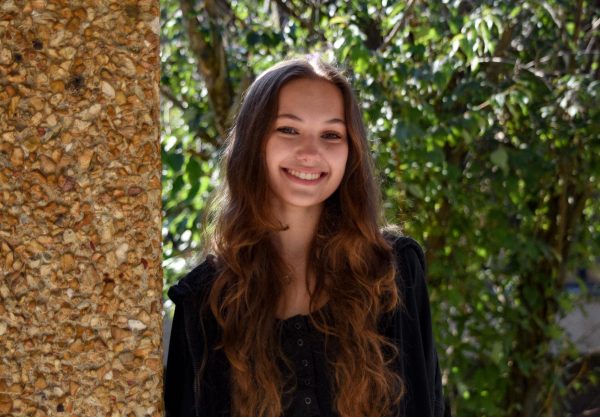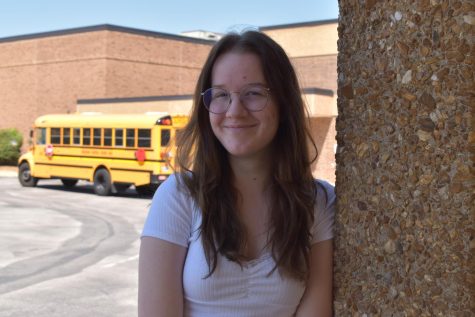‚ÄúYou fell hard. I thought, ‚Äògood riddance.‚Äô‚Äù¬Ý
Filled with remorse, this brutally honest line is sung in the opening track of singer-songwriter Gracie Abrams’ new debut album, “Good Riddance.” The 12-track album, released Friday, follows Abrams’ two EPs, “minor” and “This Is What It Feels Like.”
Abrams’ previous projects have been designated as bedroom pop music — a genre typically used to describe up-and-coming artists who record in their homes rather than a studio. The intimacy and relatability of her lyrics drew fans in, gaining Abrams almost 7.8 million Spotify listeners in the last three years.
Songs on “Good Riddance” experiment with a mixture of drum loops and layered vocals blending into Abrams’ signature acoustic sound, creating a polished and mature feel for her debut album. The National’s Aaron Dessner worked as a writer and producer on the album, and his alt-rock influence complements Abrams’ style immaculately, providing introspective and wistful tracks backed by harmonious instrumentals.
The album kicks off with the silvery “Best,” where Abrams confesses, “I never was the best to you.” The song sets the tone for the remainder of the tracks perfectly, with powerful lyrics and a rhythmic backtrack. As the song progresses, the guitar’s volume increases, and her vocals begin to layer — a repeated euphonious element throughout the album, also heard on track two, “I know it won’t work.” This is accompanied by more soft and layered vocals, building an emotional bridge. The third track, “Full Machine,” experiments with Abrams’ lower register, whispery vocals and melancholic lines like “I’m a forest fire/You’re the kerosene/I had a life here before you/But now it’s burnin’,” coming together as a powerful third track.
While the vocals and instrumentals on “Good Riddance” are certainly impressive, the most remarkable part of this album is Abrams’ lyricism. Like in her past projects, her writing is the most prominent part of her music, and in “Good Riddance,” Abrams’ meticulous lyrics captivate listeners even further. The album’s verses are so intimate they feel as if they were ripped right out of Abrams’ diary, with lines like “I should hate you, I feel stupid/Like I almost crashed my car…I swear to God I’d kill you/If I loved you less hard,” on track five, the evocative “I should hate you.” This song profoundly captures bitter emotions about a messy ending and stands out on the album.
From then on, ‚ÄúGood Riddance‚Äù delves into several acoustic pieces. The stunning ‚ÄúWill you cry?‚Äù toys with a honeyed strumming guitar and raw lyrics that circle a spiraling relationship. ‚ÄúAmelie,‚Äù the third single of the album, spotlights Abrams in her signature style ‚Äî just her vocals and a guitar. This haunting song is a beautiful track that recalls an impactful person in Abrams‚Äô life. Similarly, ‚ÄúThis is what the drugs are for‚Äù finds Abrams in a vulnerable state with her mellow acoustics. These tracks tie the album together, contrasting the songs with a stronger backbeat with a softer, lilting guitar.¬Ý
Tracks 11 and 12 close the album with a somber, more reflective sound. ‚ÄúThe blue‚Äù has a comparable love letter feel to her 2021 single, ‚ÄúFeels Like,‚Äù while spinning a more fearful twist on it, exploring the insecurities of jumping into something new. The final song, ‚ÄúRight now,‚Äù leads with a simple piano melody contrasting the lyrics, which look into Abrams‚Äô fears and uncertainties about her future. The emotional song confronts growing up and moving away delicately, closing the album on a refrain, ‚ÄúWhat if this is it for now?/Think I’m more alive somehow/I feel like myself right now.‚Äù These songs are airy and create contemplative ending tracks that listeners will relate to, forming a great finale for the album.
Ultimately, “Good Riddance” is a safe but elegant debut for Abrams. The 12-track album follows what seems to be a messy end to a complicated relationship while also tackling sentimental topics like growing up and moving away from a childhood home in lucid detail. These themes remain consistent throughout the songs, leaving listeners feeling like they lived the stories themselves. Abrams’ songwriting continues to be the highlight of her work, and she plays with metaphors and catchy one-liners that round out the album.
Although some of the songs begin to blend on the first listen, they separate into individually beautiful tracks after diving further into the album. Even so, these tracks still add to the album‚Äôs overall sound, creating a more cohesive and complete project. While experimenting with a different sound on a few various tracks would have been interesting, maintaining a synonymous feel for Abram‚Äôs debut was a safe decision that allowed her to remain in her musical comfort zone while pleasing new listeners.¬Ý
Overall, the tracks on “Good Riddance” fit together as a collective piece of lyrical art with exquisite vocals and alluring acoustics. These songs are worth listening to and make an excellent debut for Abrams.
The Pathfinder ranks “Good Riddance” an 8/10.





![There are more than 20 open cardio machines at Crunch Fitness. I enjoyed the spacious environment at Crunch, a sentiment that was shared by sophomore Sanjana Daggubati. “[Going to] Crunch Fitness was the right decision because [it] feels more professional. Crunch’s workers are laid back, but not to the point where they don't care,” Daggubati said.](https://pwestpathfinder.com/wp-content/uploads/2025/09/IMG_5242-1-1200x900.jpg)

![Various empty Kit Kat wrappers crowd the desk, surrounded by scoring sheets. While production of Kit Kat flavors in the U.S. is limited, Nestlé, the owner of Kit Kat, manufactures hundreds of unique flavors in Japan, including the flavors ocean salt and passion fruit. “I thought there [were] some interesting flavors, and a lot of them were really unexpected,” senior Elle Levesque said.](https://pwestpathfinder.com/wp-content/uploads/2025/09/image-2.png)


![Pantone’s selection of the 2025 Color of the Year is revealed: Mocha Mousse. Ceramics teacher Ashley Drissell enjoys this year’s selection. “Maybe it’s the name but [Mocha Mousse] reminds me of chocolate and coffee. It makes me hungry. It’s very rich and decadent,” Drissell said.](https://pwestpathfinder.com/wp-content/uploads/2025/02/DSC_0015-1200x800.jpg)



